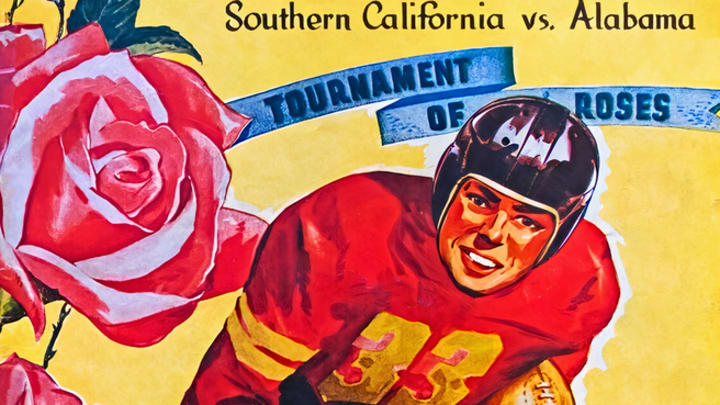End of an Era? Yes, Alabama's Played in One of Those Rose Bowls as Well

Although no one is still quite sure how different college football is going to feel and look in the near future, the end of the 2023 season will mark the end of another important era for the sport, albeit a short one.
In addition to massive realignment, which helped extinguish the struggling Pac-12 conference, NIL and the transfer portal, the College Football Playoff will have a four-team field for the final time. After a decade of pairing teams for the semifinals. next year it'll include 12 teams.
One could make the argument that in terms of major eras ending involving the Rose Bowl, this is the third, and stems from the agreement reached in December 2022, clearing the way for playoff expansion. It was the last piece to the puzzle, with one of the final sticking points being the Rose Bowl wanted to hold on to its traditional time slot at 4 p.m. CT on Jan. 1, considered among the most valuable in sports television, as much as possible.
In case you were wondering why No. 4 Alabama vs. No. 1 Michigan is the early semifinal on Monday, with No. 2 Washington vs. No. 3 Texas on prime time, that's the reason why.
This wasn't the first crack in the Rose Bowl giving up its exclusivity. That happened in 1998, with the first BCS Championship trying to match the two best teams in a title game.
But the first major shift occurred back in 1946, when the conferences currently known as the Big Ten and Pac-12 struck an agreement with the Tournament of Roses to have their champions play every year in the Rose Bowl Game. It was a first agreement of its kind and for decades proved to be a major hurdle to having the national championship settled with some form of tournament.
The final Rose Bowl prior to the deal that blocked out Southern programs featured Alabama against Southern California.
For once, the No. 3 Crimson Tide was favored, but the No. 11 Trojans had a won eight straight Rose Bowls while playing in their backyard. Alabama had enjoyed a lot of success in Pasadena, but had yet to face USC in the setting. Although the national championship wasn't on the line (Army was already locked in at No. 1), head coach Frank Thomas wasn't taking any chances.
Harry Gilmer described his pregame speech in "Game of My Life Alabama: Memorable Stories of Crimson Tide Football," by Tommy Hicks.
"Finally, in a very mild voice, he said in order for us to win the game, we were going to have to block and tackle like we had never blocked and tackled before," Gilmer said. "He was standing in front of Vaughn Mancha, our center and our very best player, as he was talking, and he kept saying, 'block and tackle, block and tackle.' Each time he said it, he got a little louder and at the end he was screaming, 'Block and tackle!' With both his fists clinched, he would bring his fists down on Vaughn's shoulder pads, and in rhythm he kept screaming, 'block and tackle!' He almost beat Vaughn to death."
After he shouted "Let's go!" the Alabama players almost ran over each other trying to get out on the field. Even though USC had a significant size advantage across the board, the Crimson Tide simply dismantled the Trojans.
It took two defensive plays for Alabama to take control of the game, thanks to a fumble in the Southern California backfield recovered by Jack Green at the 15. Four plays later quarterback Henry Self scored on a sneak and the rout was on. At halftime, the Crimson Tide had 20 points, while the Trojans were at minus-24 yards of total offense. They didn't get a first down until behind 27-0. Alabama won 34-14, and outgained USC 351-41.
The Crimson Tide wouldn't be welcomed back to Pasadena for 63 years.
Parts of this story originally appeared in 100 Things Crimson Tide Fans Should Know and Do Before They Die.
This is the sixth story in a series about Alabama's history in the Rose Bowl as in prepares to face Michigan in the CFP semifinal on Jan. 1
